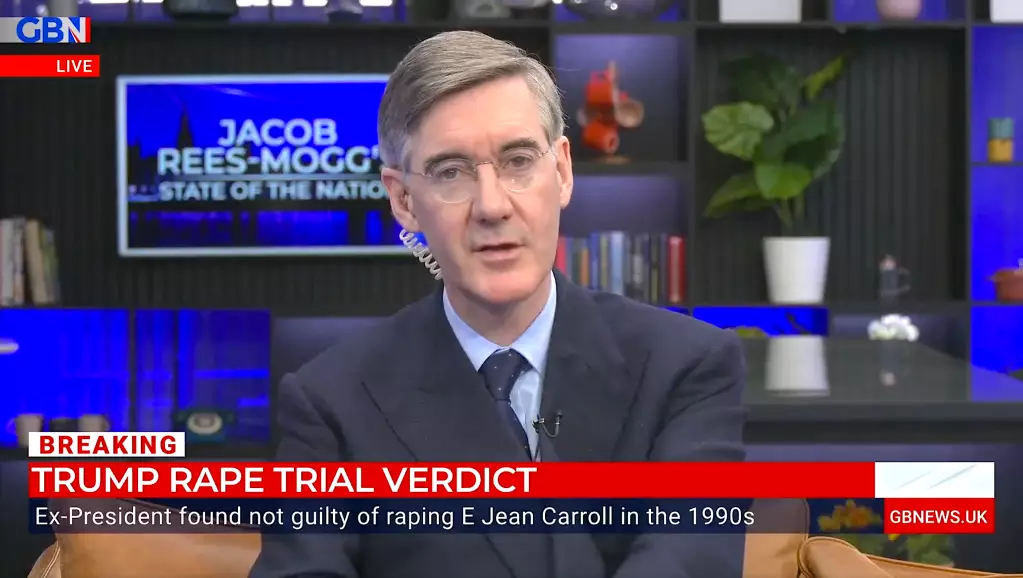The recent legal victory by GB News against the UK media regulator Ofcom has stirred significant debate within the British broadcasting landscape. The High Court ruled in favor of GB News, stating that Ofcom’s decision to penalize the channel for two broadcasts presented by Jacob Rees-Mogg was unfounded. This ruling not only marks a pivotal moment for GB News but also raises critical questions about the regulatory framework governing political discourse within media outlets.
At the heart of the controversy was a segment of Mogg’s *State Of The Nation*, aired in May 2023, where he reported on Donald Trump’s conviction for sexual assault. Ofcom argued that Mogg, previously a Conservative Minister, overstepped boundaries by acting as a newsreader. According to Ofcom, his presentation style blurred the line between commentary and news reporting, thereby breaching Rule 5.3 of the UK broadcasting code. This rule explicitly prohibits politicians from serving as presenters in news programs unless there is a compelling editorial justification.
What compounded the issue was a second incident involving the reporting of a tragic shooting spree in Nottingham, which further incited Ofcom’s scrutiny. In March, Ofcom classified *State Of The Nation* as both a “news program” and a “current affairs show,” the former of which is tightly regulated under Rule 5.3, while the latter has more leeway. The High Court ultimately determined that *State Of The Nation* is predominantly a current affairs program and therefore not subject to Rule 5.3 regulations.
The judicial reasoning provided by Mrs. Justice Collins Rice was unequivocal. The judge pointed out the misapplication of Rule 5.3 in assessing *State Of The Nation*. She indicated that Ofcom incorrectly conflated news programming with current affairs shows, leading to an erroneous verdict. The court’s analysis underlined a crucial distinction within the British broadcasting statute: current affairs programming is treated differently than standard news broadcasting, thereby exempting *State Of The Nation* from the specified restrictions on politician presenters.
Mrs. Justice Collins Rice’s decision to quash Ofcom’s penalties reflects growing recognition that the broadcasting landscape is evolving. With the rise of platforms that defy traditional formats, such as GB News, regulators may need to recalibrate their approach to ensure that it resonates with the realities of modern media consumption.
The ramifications of this ruling extend beyond GB News. Angelos Frangopoulos, the CEO of GB News, heralded the decision as a victory for free speech, arguing that it highlights the station’s commitment to representing diverse viewpoints. He urged the government to reassess Ofcom’s interpretation of broadcasting regulations, promoting the idea that media must adapt to serve a modern, multifaceted audience.
Ofcom, for its part, acknowledged the court’s recommendations while noting that it would revise Rule 5.3 to provide clearer guidelines for broadcasters. The existing rule, established nearly two decades ago, was created at a time when it was less common for political figures to host news-based programs. Critics of the current setup have long advocated for a revision of this rule, emphasizing that contemporary broadcasting demands a different approach than what was once appropriate.
The court’s ruling may signal a seismic shift in how the media landscape will adapt to the realities of political presentation and commentary. As the public increasingly turns to news sources that diverge from traditional reporting, the question remains: how will regulatory bodies evolve to address these shifts? The significance of this ruling could prompt other channels to recalibrate their approaches, with the potential for increased accountability concerning politicians in media roles.
Moreover, as GB News continues to gain traction and viewership, its model could become a template for other news anxieties seeking to carve out their niche in a packed marketplace. As audience demand for varied perspectives grows, GB News’s triumph at the High Court may well presage a future where flexibility in regulatory interpretation becomes the norm.
This landmark judicial ruling is not merely a victory for GB News; it serves as a catalyst for broader conversations about political representation in media and the critical need for adaptable regulations in an ever-evolving broadcasting environment.

